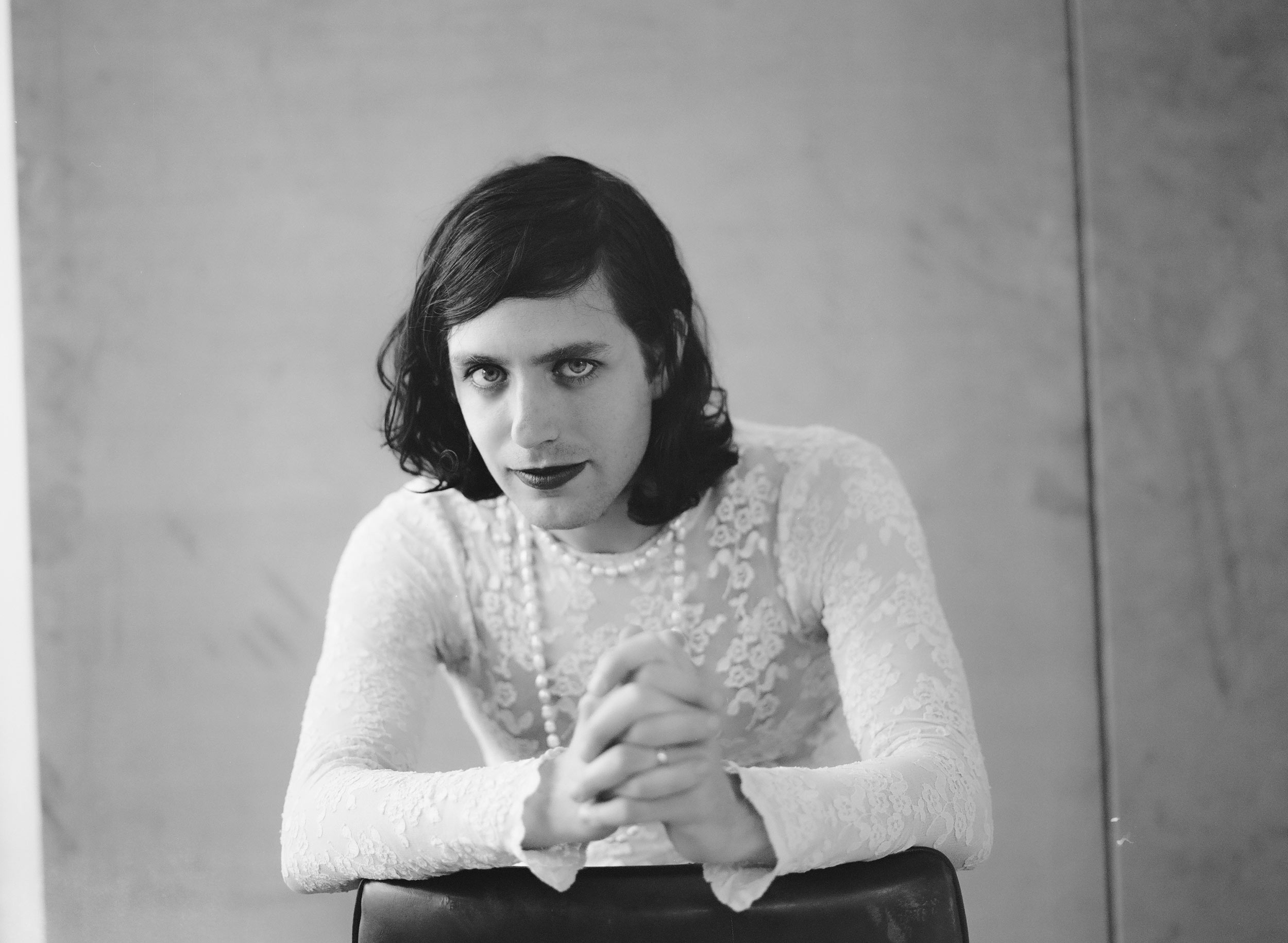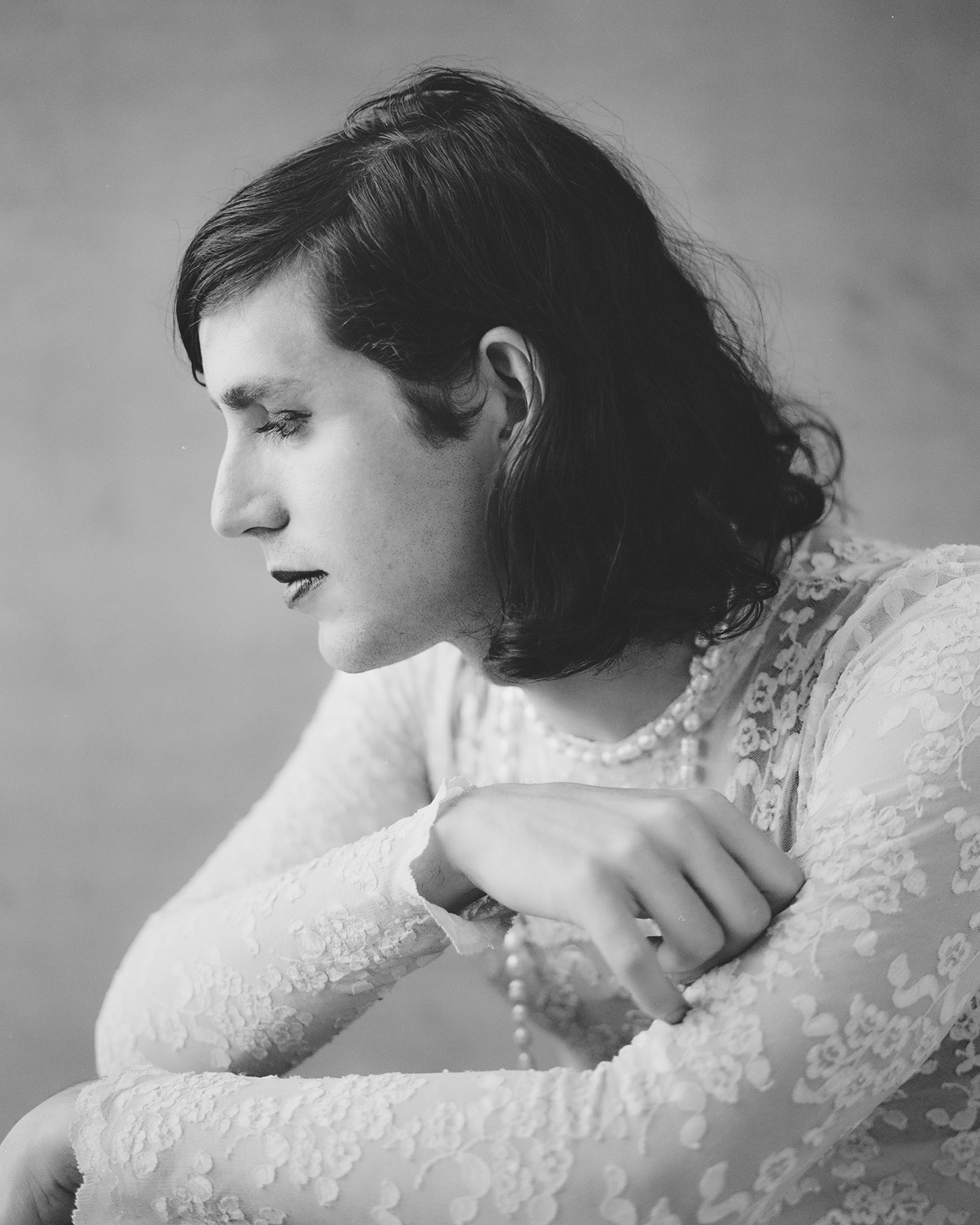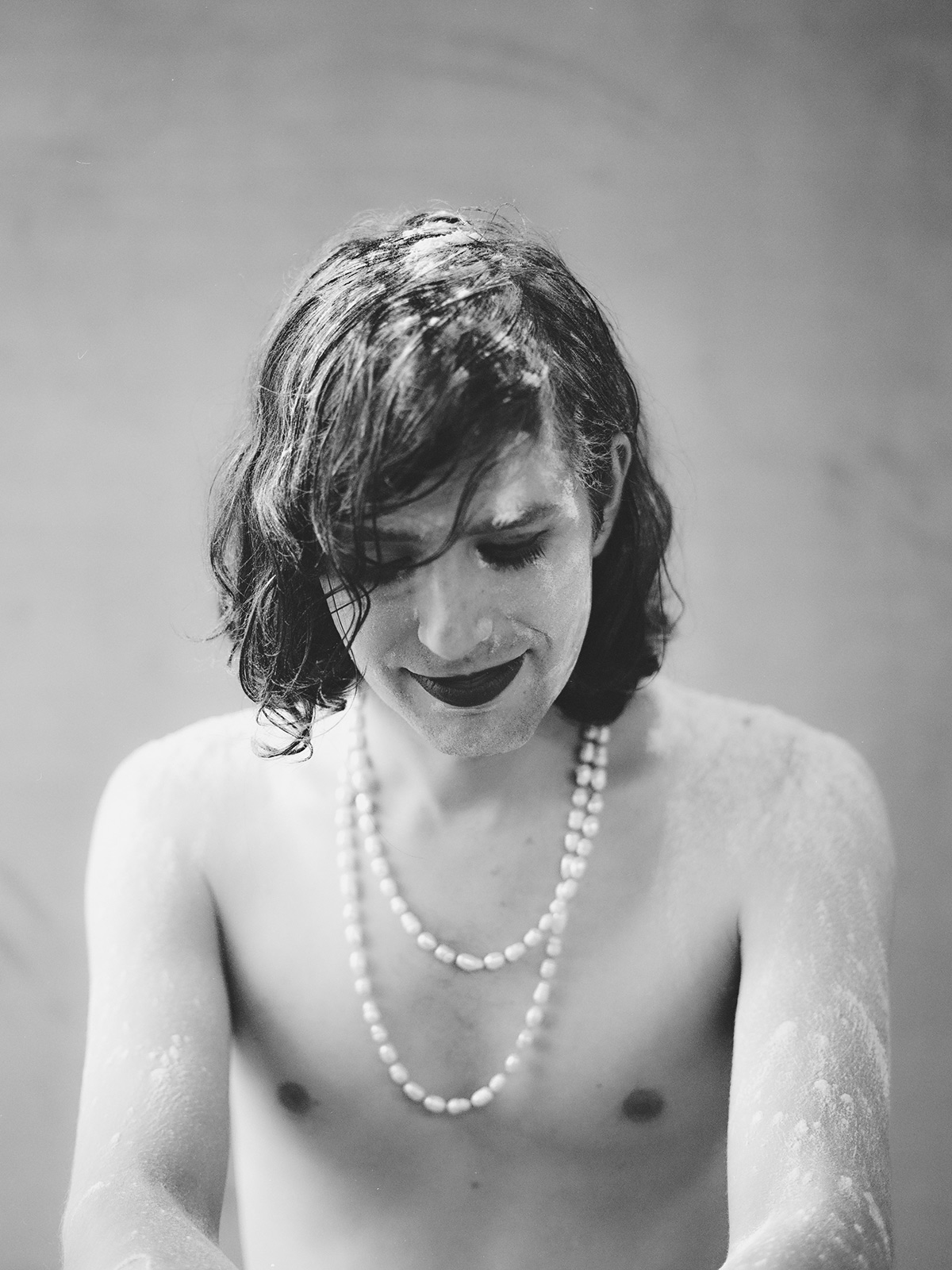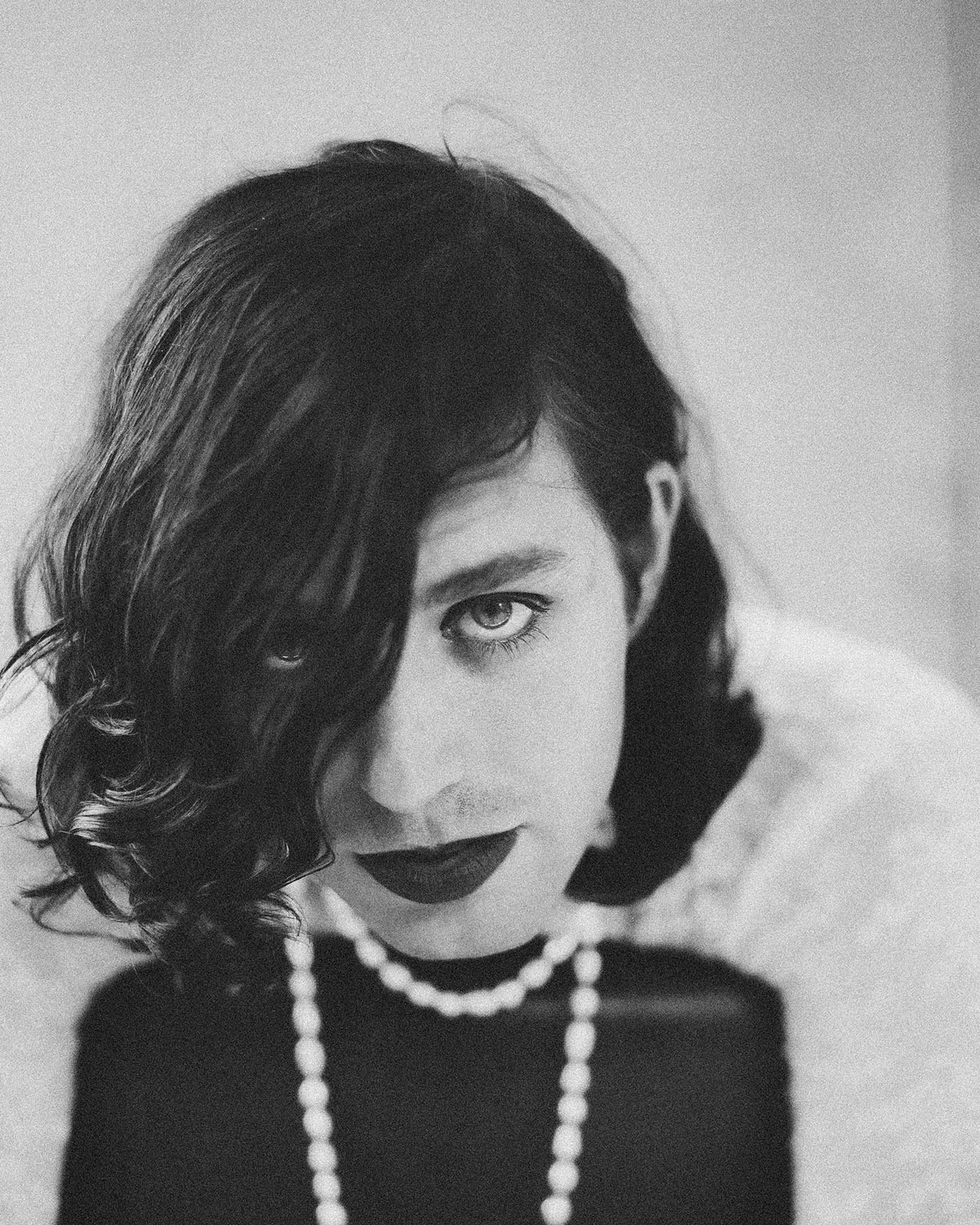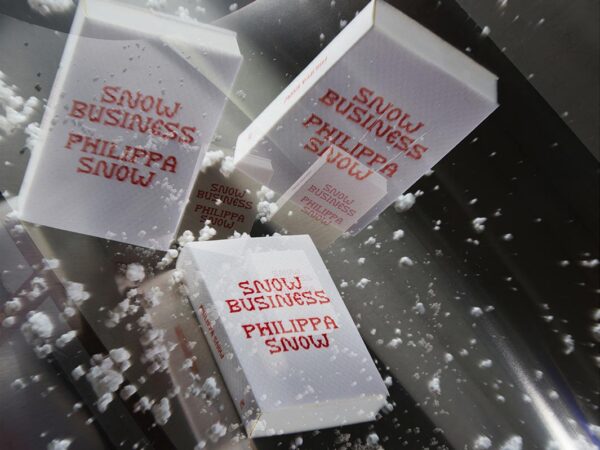The punk artist discusses Lou Reed, Greta Thunberg, and the dangers of complacency.
A lot has happened in 2019 that people should be angry about. 2018 too, and songwriter Ezra Furman has funneled his frustrations by ways of a microphone, producing a quintessentially punk reaction to our society’s current injustices. His latest album Twelve Nudes, released today, leaves restraint at the door. This album has a greater sense of urgency than his last, recorded in two weeks with eleven songs, 26 minutes in total. Transangelic Exodus, the record’s precursor, features a rock-and-roll soul and a thematic core of two smitten queer outlaws. Twelve Nudes speeds past that, utilizing passion, outrage, and punk to fuse together melodies of unadorned resistance.
Over the past few years, he has been seen more regularly in the limelight, authoring a book about Lou Reed’s 1972 album Transformer, and producing the soundtrack to Netflix’s program Sex Education. Ahead of the release of Twelve Nudes, Ezra sat down with Document Journal to talk about what it means to be punk in an age that requires excessive refusal of complacency.
Sophia Segarra—The first thing I want to know is if there’s anything in Twelve Nudes that you are happy you got to put in, compared to Transangelic Exodus—something you felt wasn’t satiated?
Ezra Furman—There’s a directness to it that is satisfying. Like the song “Evening Prayer”—It’s exactly what I’d like to say to a room full of people. When we play a good show there’s an energy crackling through the room. We found this clearing together, we have some kind of powers together, and in that song I’m like use that power! Use it outside this room, tomorrow, next week, or next year. It’s a power that comes from all of us, and multiplies exponentially when we feel it together. I hope for all my fans to become activists for things they care deeply about.
Sophia—I know you’ve been recently taking a stride into climate change, I’m wondering what had made you passionate?
Ezra—There’s been some realizing that I feel better when I act in accordance with my values. It’s more comfortable to feel powerless, but I have extra time, a little extra money, and I’ve got some people who pay attention when I talk sometimes, you know? And, I can vote! I have these powers that not everybody has, and it is not forgivable to not use it.
Sophia—Is there some people you’ve been looking up to?
Ezra—I particularly admire Greta Thunberg. She’s strikingly young and has found a way to tell the truth in very stark terms that are accurate and also galvanizing. I feel galvanized by what she has to say.
Sophia—Do you think the power that you were talking about can be a bit of a burden, a lot to handle?
Ezra—I mean, it’s a lot to handle to be a human being. It was a long time ago when I got into the art of seeing ethical choices—subtle ways that you can help or hurt. They come up every day. It took me a long time to realize one of those ethical choices is just what you talk about. I thought there was a divide—you can talk, but when are you really going to do something? And that’s real, but also, talking is doing something. We’re in dozens of emergency situations that need immediate attention, and if you pay attention to all of them, it can be a little paralyzing. But it’s a privilege to become paralyzed.
Sophia—In the realms of paralyzation and emotion, let’s talk more about Twelve Nudes. There’s a lot more of a raw feeling than in your past albums, do you think that’s difficult to dig up or more cathartic and thus easier to produce?
Ezra—There are two answers to the question, because one answer is yes, it’s easier. We did it in two weeks and that was the idea—to make it quickly and not overthink. That was not at all what we did with Transangelic Exodus, because for a very long time we went against all of our instincts to make music we felt we had never made before. This album sounds like a lot of music that we know and love. I looked into my spirit, took out what was in there, and put it into the record. But, the process of getting was developing my spirit to the point of where it is—that’s the work of a lifetime. And a lot of it has been a brutal process.
Sophia—Looking back into when you made the album, do you think you have more wisdom about how you felt at that time, or are living through those same emotions every day? Is there a different perspective?
Ezra—I am living through those same emotions every day, but I have started to understand. I have started to understand the occasional, or even frequent, feeling of despair to be an alarm bell that should be responded to. I had to lean into and look at these things head-on, to feel the feeling that things aren’t going to be ok. For some time I was feeling that it is going to be ok, we’ll stick together and sing. I think that’s very valuable, but it’s invaluable to not do that, and just feel the bleakness. It’s your ethical self trying to wake you up—to respond to an emergency. When I say emergencies, first one I think of is climate change, but there’s a number.
Sophia—I’m interested in your book about Lou Reed’s Transformer. Do you think after publishing that, it affects the way you make music now, specifically Twelve Nudes?
Ezra—That’s an interesting question. I ended that book trying to answer a question of what is punk? Why do I need it in my life? The answer might be simple or complicated. Punk rock is really the first thing that I loved as my own, and I always felt like I could do it, and I never really went full on like I am with this record. Maybe writing that book convinced me that I did have something to add, and I wouldn’t just sit doing Sex Pistols karaoke.
Sophia—Do you think that writing the book gave you anything other than confidence, did it inform you in some way? Did it synthesize what you already knew, or did it give you a reason as to why you can?
Ezra—Sustained attention to Lou Reed’s career somehow opened possibilities in my mind. The first time I heard The Velvet Underground, I can’t even explain how much it seemed to open the world for me—the range of ways I could be a human being. I could sense possibilities opening in his voice and the way he carried himself. The more I learn about his career I see how many ways you can go and still be true to yourself. And, interesting ways to fail. Because I think he failed often, and didn’t really care when he failed, which can be frustrating as a stan—to hear a terrible album by a guy who you know can do better. But also, being willing to fail can get you somewhere that somebody else who was not willing to fail couldn’t have gone. Who would write “Heroin” in 1965? Who would do that, why would you do that? It’s just, such a risk, that it borders on idiocy. Risk something that matters, because that’s what Tom Waits said.
Sophia—Do you think you’ve tried to follow that mantra in your career?
Ezra—I feel such horror when I imagine myself making a record I don’t like. But then again, I looked at some of my earlier records, and I don’t like them, and they were borne of boldness. That’s true with all the work I’ve made; I can see the pitfalls of what I’m about to do and ways it can be the wrong move, but my fascination with what I may be onto is stronger than that.


